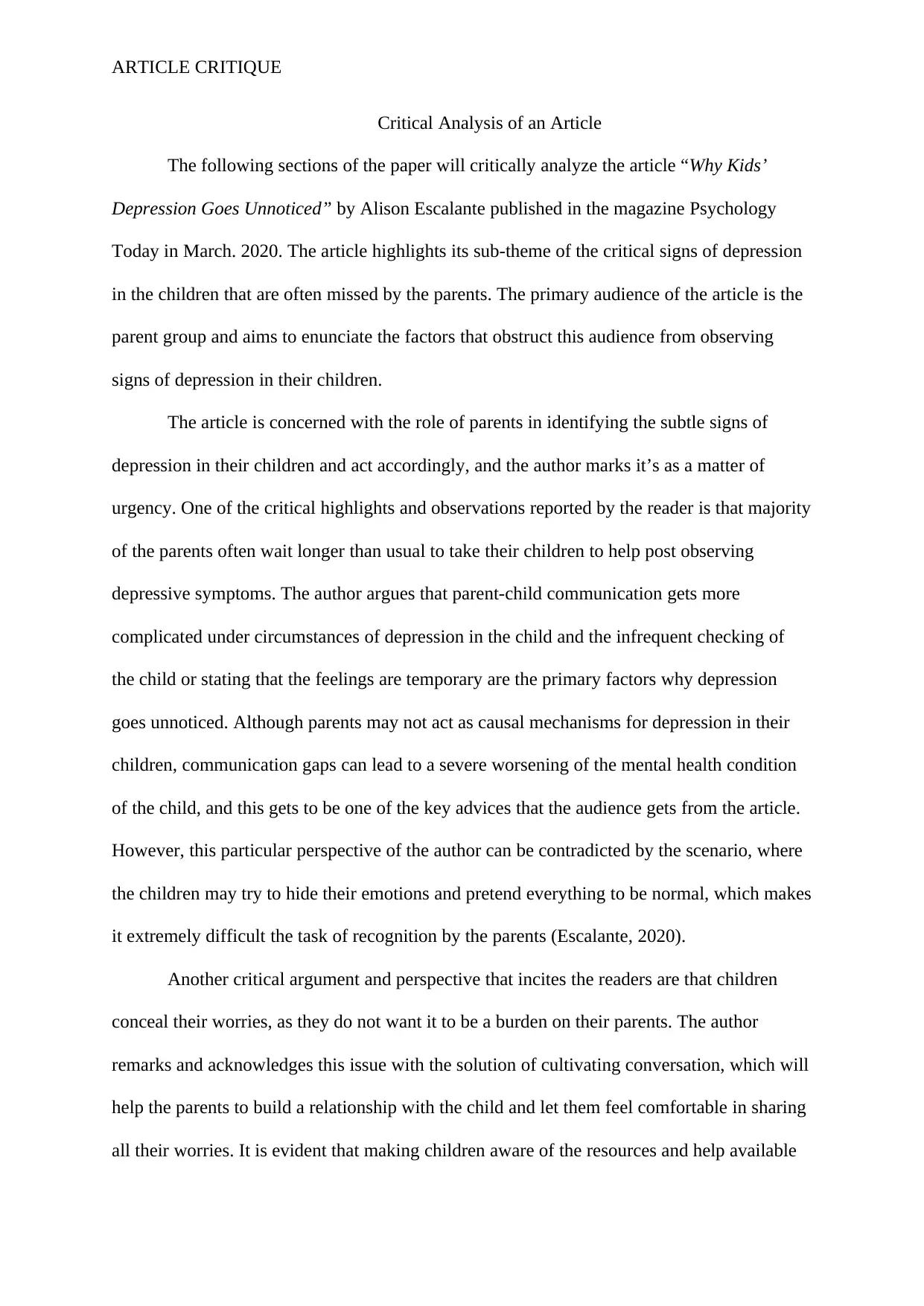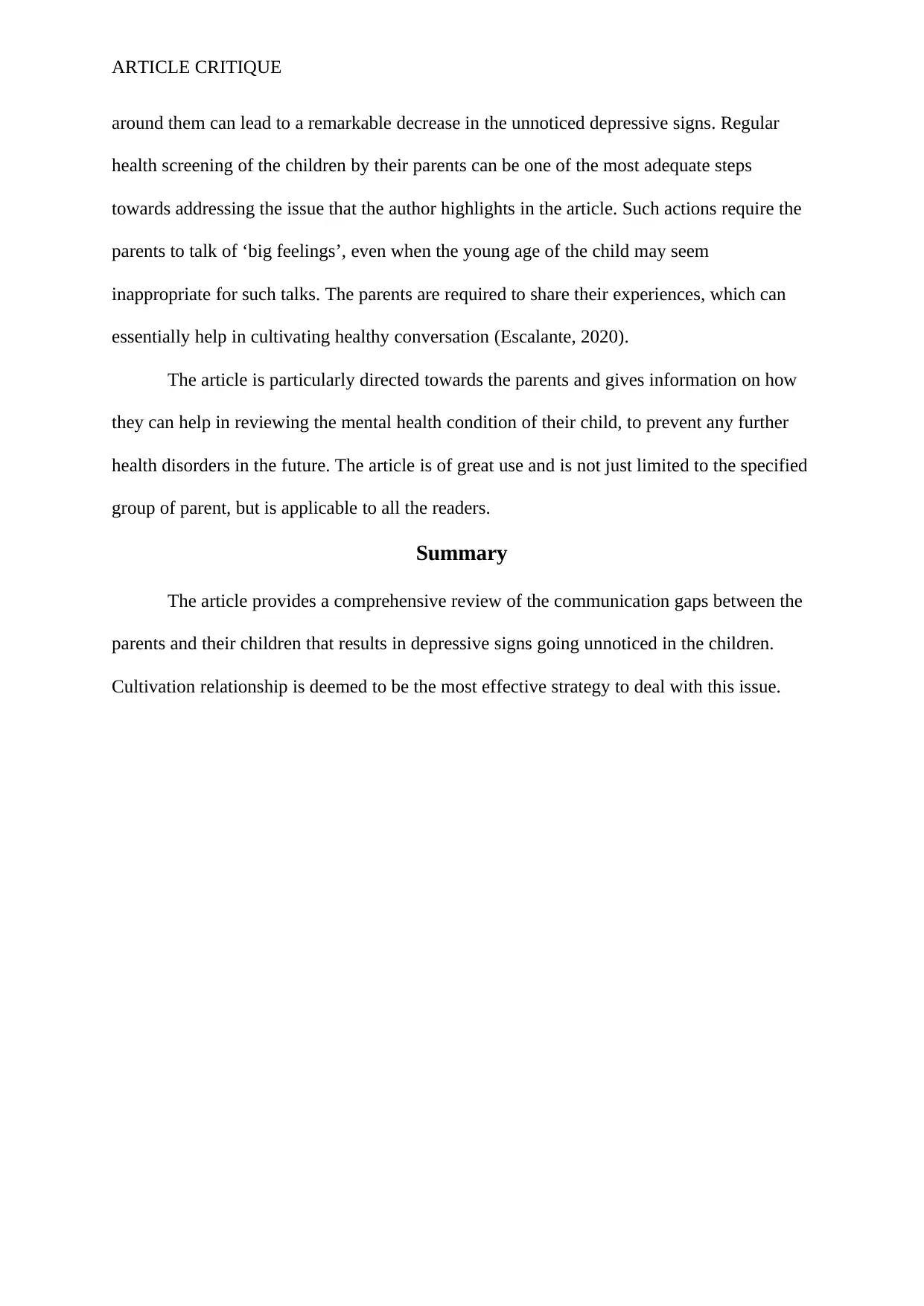Article Critique: Analyzing 'Why Kids' Depression Goes Unnoticed'
VerifiedAdded on 2022/09/13
|4
|634
|20
Report
AI Summary
This report presents a critical analysis of Alison Escalante's article, "Why Kids’ Depression Goes Unnoticed," published in Psychology Today. The critique focuses on the article's examination of communication gaps between parents and children as a primary reason for the under-detection of childhood depression. The analysis discusses the author's arguments, which emphasize the importance of parental awareness and proactive communication in recognizing subtle signs of depression in children. The critique highlights the article's relevance, particularly for parents, and its broader implications for mental health awareness. It also considers potential counterarguments, such as children concealing their emotions, and proposes solutions like fostering open conversations and making children aware of available resources. The report concludes by emphasizing the importance of regular health screenings and open communication to address the issue of unnoticed depression in children.
1 out of 4








![[object Object]](/_next/static/media/star-bottom.7253800d.svg)